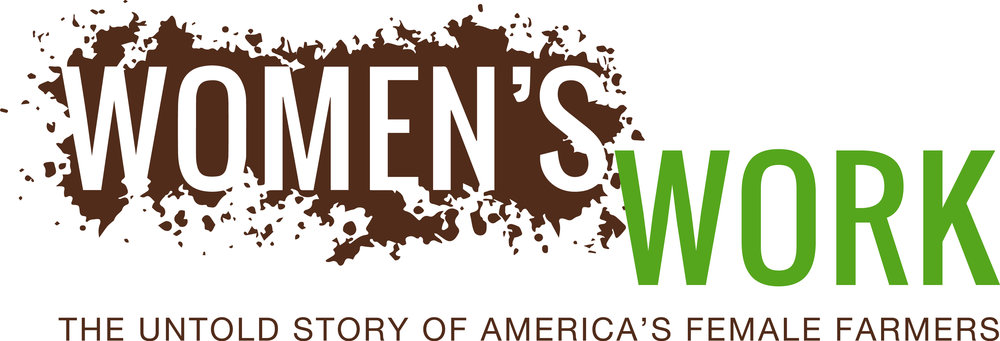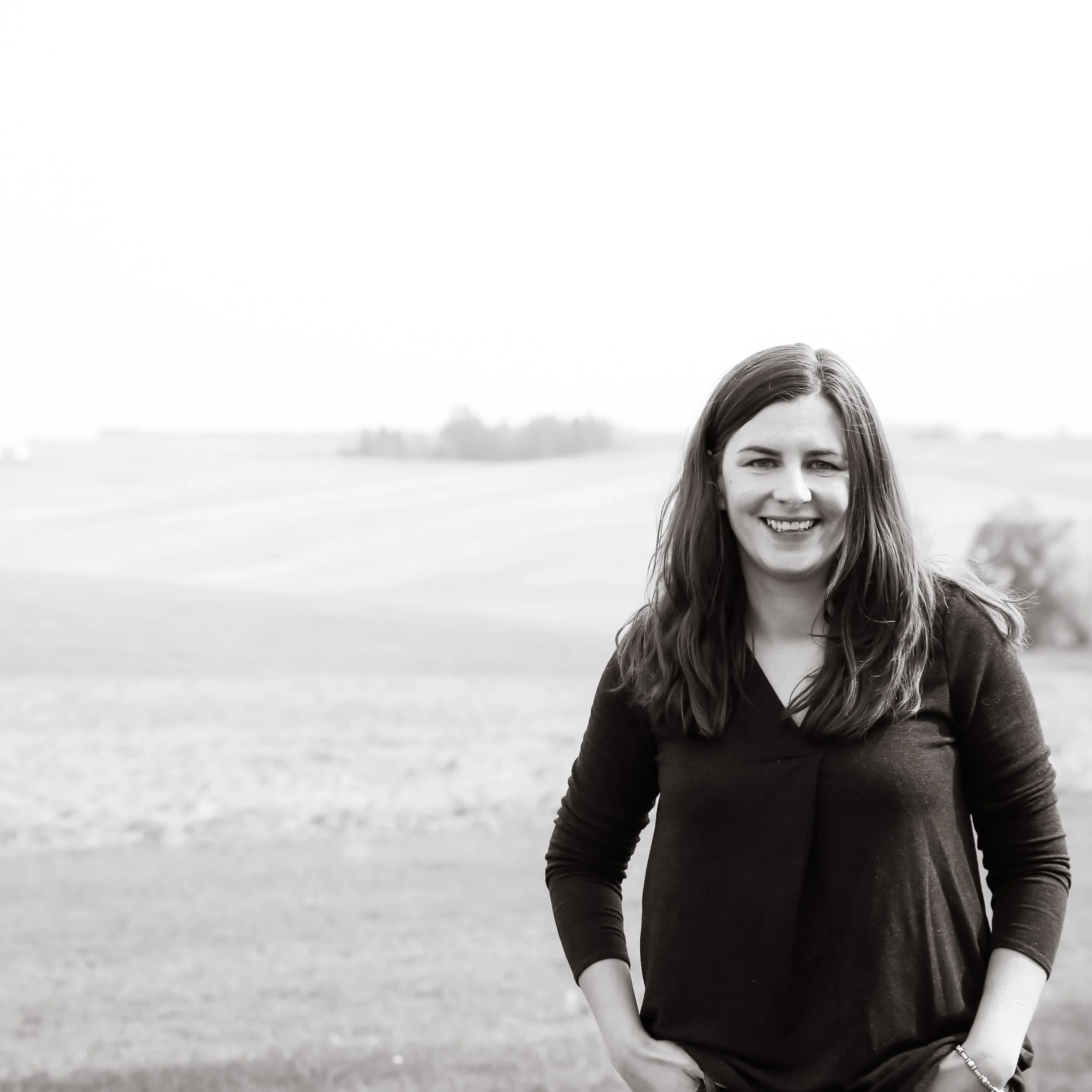the experts
Dr carolyn sachs, penn state
Co-founder of the Pennsylvania Women’s Agricultural Network and a consultant for the FAO and UNESCO. Professor Emeritus of rural sociology and head of the Women’s Studies Department at Penn State University.
Selected Books
Invisible Farmers: Women in Agricultural Production. Rowman and Allanheld, Totowa, New Jersey, 1983.
Gendered Fields: Rural Women, Agriculture, and Environment. Boulder, CO: Westview Press, 1996.
Women Working in the Environment (Ed.). Washington, D.C.: Taylor and Francis, 1997.
Selected Chapters
"Women in Agricultural Development." Chapter 7 in International Agricultural Research and Development. Edited by J. Lin Compton, Westview Press, Boulder, CO. (1988). (With V. Caye)
"The Participation of Women and Girls in Market and Non-Market Activities on Pennsylvania Farms." Chapter 7 in Women and Farming. Edited by Wava G. Haney and Jane B. Knowles. Westview Press, Boulder, CO. (1988).
"Rural Women and Environmental Activism." Chapter in Gender and Rurality. Edited by Sarah Whatmore. London. 1993
“Farm Women: Sustaining Farms and Feeding People.” In Robin Morgan (ed.) Sisterhood Is Forever: The Women’s Anthology for A New Millennium. Simon and Schuster, 2004.
“Rural Women and the Environment,” 2005. Chapter in Rural Gender Relations, ed. Sally Shortall and Bettina Bock CABI.
Selected Articles
"Labor Force Participation of Metropolitan, Nonmetropolitan, and Farm Women: A Comparative Study." Rural Sociology 48 (4):515-539 (1984). (With J. Bokemeier and Verna Keith)
"Measurement of Women's Economic Activity: A Study of the Iloilo Province in the Philippines." Northeastern Agricultural Economics Journal 12 (2):31-36 (1983). (With K. Herther)
"Women's Work in the U.S.: Variations by Region." Agriculture and Human Values 2 (1):31-39. (1985)
"American Farm Women." Women and Work 2:233-248.
For full CV - please click here
Dr Cherisse Jones-Branch, Arkansas State University
Graduate School Dean, Professor of History, Vice President of the Agricultural Society - specializes in United States, African-American, Women, Civil Rights, and Rural History. Series Co-editor, Rural Black Studies, University of Arkansas Press
Books
"Better Living by Their Own Bootstraps": Rural Black Women's Activism in Arkansas, 1913-1965 (Fayetteville: University of Arkansas Press, 2021)
“. . . To Make the Farm Bureau Stronger and Better for All the People:” African Americans and the American Farm Bureau Federation: 1917-1966 (manuscript in progress)
"Better Living by Their Own Bootstraps": Rural Black Women's Activism in Arkansas, 1913-1965 (Fayetteville: University of Arkansas Press, 2021).
Co-edited with Dr. Gary Edwards, Arkansas Women: Their Lives and Times (Athens: University of Georgia Press, 2018).
Crossing the Line: Women's Interracial Activism in South Carolina during and after World War II (Gainesville: University Press of Florida, 2014).
Edited Volumes
Co-edited with Dr. Adrienne Petty, “African American Women in the 20th Rural South,” a special issue of Agricultural History (Summer 2019)
Essays/Articles/Book Chapters
“To Raise Standards Among the Negroes:” Jeanes Supervising Industrial Teachers in Rural Jim Crow Arkansas, 1909-1950,” Agricultural History (Summer 2019), 412-436.
“Been a Guinea Pig in this Race: Annie Ruth Zachary Pike, Arkansas Homemaker, Farmer, and Politician, International Journal of Africana Studies, (Spring-Summer 2018): 7-24.
“An Uneasy Alliance: Farm Women and the United States Department of Agriculture, 1913-1995,” Federal History, Issue 10 (April 2018): 98-114.
“Women and the 1919 Elaine Race Massacre,” in The Elaine Massacre and Arkansas: A Century of Atrocity and Resistance, Guy Lancaster, ed. (Fayetteville: University of Arkansas Press, 2018): 178-202.
“African American Home Demonstration Agents in the Field and Rural Reform in Arkansas, 1914-1965,” in Food History and Rural Woman Professionals, 1880-1965, Linda Ambrose and Joan Jensen, eds., (Iowa City: University of Iowa Press, 2017), 156-173.
Dr Ryanne Pilgeram, independent scholar
Specialist in rural communities and a former Professor of Sociology. Her work on gender and farming explores how women have been historically excluded from owning land and locked out of the successorship of generational farmland. Her decade-long research focuses on women in agriculture and the social, financial, and other barriers they contend with, including the acquisition of land.
Books
2023 Pushed Out: Contested Development and Rural Gentrification in the US West, University of Washington Press
Selected Publications
2022. “Women, race and place in US Agriculture”
2020. “How the USDA Changed the Way Women Farmers Are Counted in the Census of Agriculture”
2018. “How much does property cost up there?”: Exploring the relationship between women, sustainable farming, and rural gentrification in the US”
2015. “Beyond ‘Inherit it or Marry it:’ Exploring How Women Engaged in Sustainable Agriculture Access Farmland.”
2015. “Good Food, Good Intentions: Where Pro-Sustainability Arguments Get Stale in U.S. Food Documentaries.”
2011. “‘The Only Thing That Isn’t Sustainable…is the Farmer’: Social Sustainability and the Politics of Class Among Pacific Northwest Sustainable Farmers,”
2007. “‘Ass-Kicking’ Women’: Doing and Undoing Gender in a U.S. Livestock Auction.”
Amy juan, tohono o’odham/International Indian Treaty Council
Amy R. Juan comes from the communities of Comobabi, Ali Cukson, and Wecij Oidag on the Tohono O’odham Nation. Raised by her grandmothers, Amy was instilled with the knowledge of plants by her grandmothers, learning how to gather and use traditional medicines and harvest, process, and cook traditional foods. Her passion continued through youth leadership development and revitalizing traditional foods on the Tohono O’odham Nation with Tohono O’odham Community Action where she was co-coordinator of the Young O’odham United Through Health (YOUTH) program and Project Oidag. Her work continued in the areas of researching Climate Change adaptation at Tohono O’odham Community College where she graduated in 2014 with an Associates in Liberal Arts.
Amy is a former Culture Teacher at Baboquivari High School, where she took the classroom outside and began to integrate wild food harvesting and planting with her students. In 2018, Amy began working with the Indigenous Peoples Human Rights organization, the International Indian Treaty Council, and currently serves as the Arizona Tribal and Community Liaison with a strong focus on O’odham border issues and rights, seed and food sovereignty, and climate change adaptation. Through this work, Amy has traveled the world including attending the recent 2022 COP 27 UN Climate Change Summit in Sharm El-Sheikh, Egypt, and advocating for Indigenous Peoples voices in climate change adaptation strategy and planning by being part of the City of Tucson Climate Action Steering Committee. In June of 2022, Amy joined the San Xavier Cooperative Farm as the Administration Manager where she is enjoying working diligently at strengthening O’odham foodways and Oidag Himdag (Planting Culture).
Olivia davis, DOCENT, SOLDOTNA HISTORICAL SOCIETY & MUSEUM
Olivia was born and raised in Soldotna Alaska. When in third grade, Marge Mullen spoke at her elementary school about the homesteader life, even taping out how large her cabin was on the floor of her classroom. Ten years later, she became a docent of the Soldotna Homestead Museum to share the homesteading history of her hometown with people from around the world.
Kelli Foreman, FARMER, Vice president Alaska farm bureau
Kelli is a fifth-generation farmer at Kodiak Baptist Mission’s Heritage Farm & Ranch, located in Kodiak, Alaska. She operates a Grade A Certified Goat Dairy, raises sheep, cattle, chickens, ducks, rabbits, pigs, horses and the island’s only mule. Kodiak Baptist Mission’s Heritage Farm & Ranch is a teaching farm with preschool, after school and summer day camps on site.
Kellis is also a member of the Alaska Farm Bureau and serves on the board of directors. She is a voice for Alaska farmers to the state, governing officials and local communities. She believes Alaska agriculture is a vital part to the state’s success and is championing farmers to produce more and our residents to consume more Alaska Grown.






